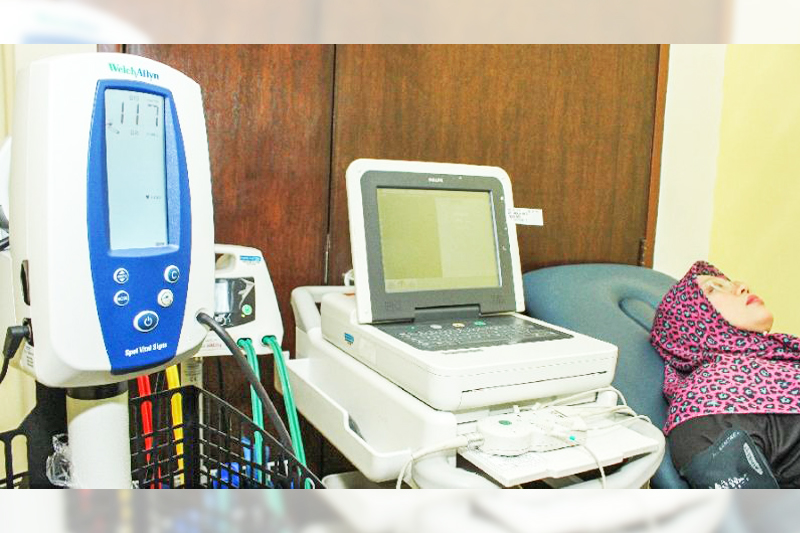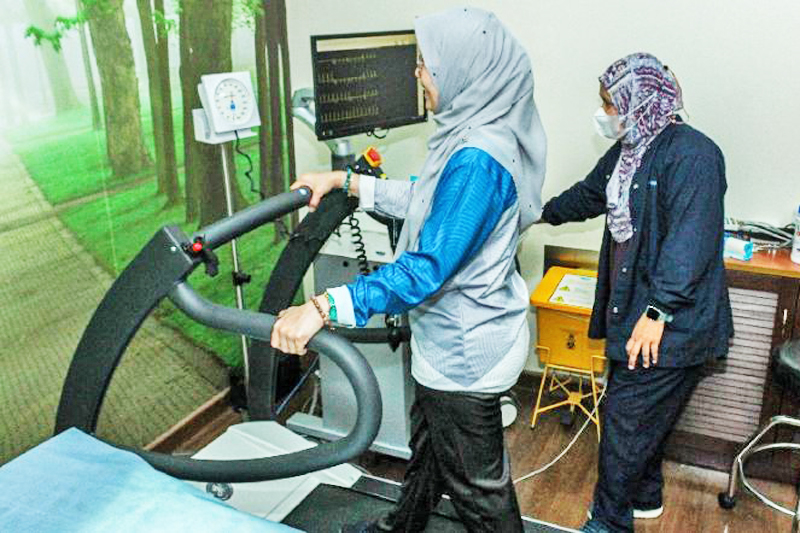Heart disease is the leading cause of death worldwide, and according to the World Health Organization (WHO), approximately 23.6 million people in the world are expected to suffer from chronic heart disease by 2030.
In Malaysia, the Ministry of Health reported that the burden of heart-related diseases increased from 11.6 percent in 2000 to 17 percent in 2020.
Most worryingly, experts say, this disease no longer recognizes age even though at one point in the past most cases involved the elderly.
YOUNG PEOPLE
Sunway Medical Center Cardiology Consultant Dr Patrick Tiau said based on the latest data in Malaysia, the average age of heart attack patients is between 50 and 60 years, but cases involving people in their 30s and 40s are increasing.
“In that regard, from existing studies, we can conclude that there is an increase in heart disease occurring in young people, and the reality is that everyone has the possibility of experiencing heart problems regardless of age,” he told Namedrecently.



Based on the latest information from the National Cardiovascular Database (NCVD), the average age of heart attack patients in Malaysia is 57 years, which is younger than the age of patients in developed countries.
More worryingly, NCVD also recorded that about 24 percent of heart attack patients are those under the age of 50.
According to Dr. Patrick, heart diseases that are often experienced by this group include ischemic heart disease and heart attack.
“Ischemic heart disease occurs when there is a lack of blood supply to the heart. This condition is usually caused by the process of arteriosclerosis, which is the accumulation of cholesterol or fat plaques in the blood vessels and causes progressive narrowing.
“These symptoms are very similar to a heart attack, but ischemic heart disease is usually chronic and progressive, a condition where blood flow to the heart decreases over time. Patients usually experience symptoms such as chest pain and shortness of breath, especially when exercising,” he explained.
(Arteriosclerosis refers to the condition of the arterial walls becoming hard, thick and losing elasticity.)
A heart attack, said Dr. Patrick, occurs when blood flow stops completely and causes damage or death of heart cells.
“This condition can occur suddenly or suddenly, that is, the individual may have never experienced any signs (usually related to heart disease) before, or be considered a person who is in the healthy category,” he added.
Accordingly, he said, it is very important for each individual to check their heart health at a young age and ensure overall health at the best level.
LIFESTYLE
Commenting further, Dr Patrick said there are many factors that cause young people to be at risk of heart problems, one of which is an unhealthy lifestyle.
“Unhealthy lifestyles include smoking which is currently a worrying trend among teenagers, making a person more likely to get heart disease.
“Society only views smoking as the cause of respiratory problems and lung cancer, but not many people know that those who smoke regularly have two to four times the risk of heart disease,” he said.
He explained that this is because the effects of nicotine contained in cigarettes can make blood vessels thicken and narrow, making it difficult for blood to flow to the heart.
This situation, he said, has the potential to cause part of a person’s body to become paralyzed and result in death.
He added that stress also contributes to the risk of heart disease among young people.
“Many do not realize, those who are under stress (usually) indirectly live an unhealthy lifestyle, namely smoking, eating excessively and not sleeping, thus risking affecting their health in general and easily getting chronic heart disease.
“Therefore, they need to deal with stress wisely and avoid unhealthy lifestyle practices and take care of their diet from a young age (to avoid the risk of heart disease),” he stressed, adding that young people need to be aware of all aspects related to heart problems, including early symptoms.
CHECK THE HEART
In line with this year’s theme of World Heart Day, which is Use Heart for Action, Dr Patrick suggested that members of the community be more proactive in curbing the disease by doing prevention.
Among them is screening and comprehensive health check-ups including heart regularly.
“More so for those who are at high risk, ie smokers and those who have a family history of heart disease, diabetes or high blood pressure,” he said.
He added that blood tests can also help detect cholesterol levels in the blood and diabetes, which are two conditions that increase the risk of heart disease.
“People can also undergo an Exercise Stress Test (EST), which is a heart screening test that allows individuals to know their heart health level.
“This test can also detect whether an individual is at high risk of having a heart attack or vice versa,” he said.
At the same time, he said that cooperation between the health sector and the education sector is also important to increase public awareness about heart disease in Malaysia since the issue of lack of awareness is a problem across various ages.
“Public and private health organizations can provide expertise and resources, while educational institutions can facilitate early intervention through the dissemination of knowledge related to heart disease.
“This collaborative approach will certainly create a society that is more knowledgeable and concerned about health, and this will also help reduce cases of heart disease, thereby improving public health as a whole,” he said. – Named
